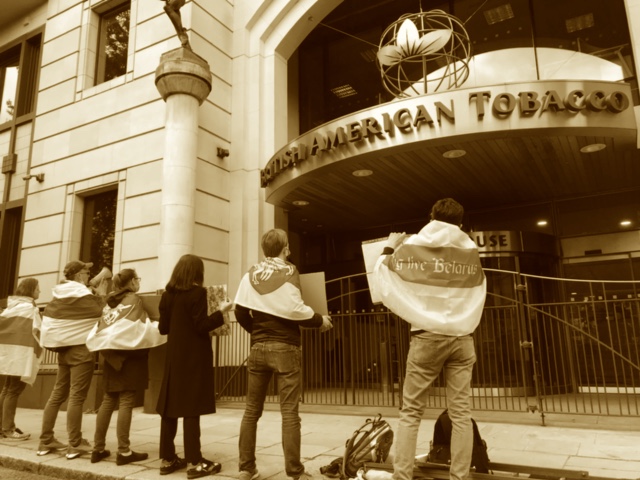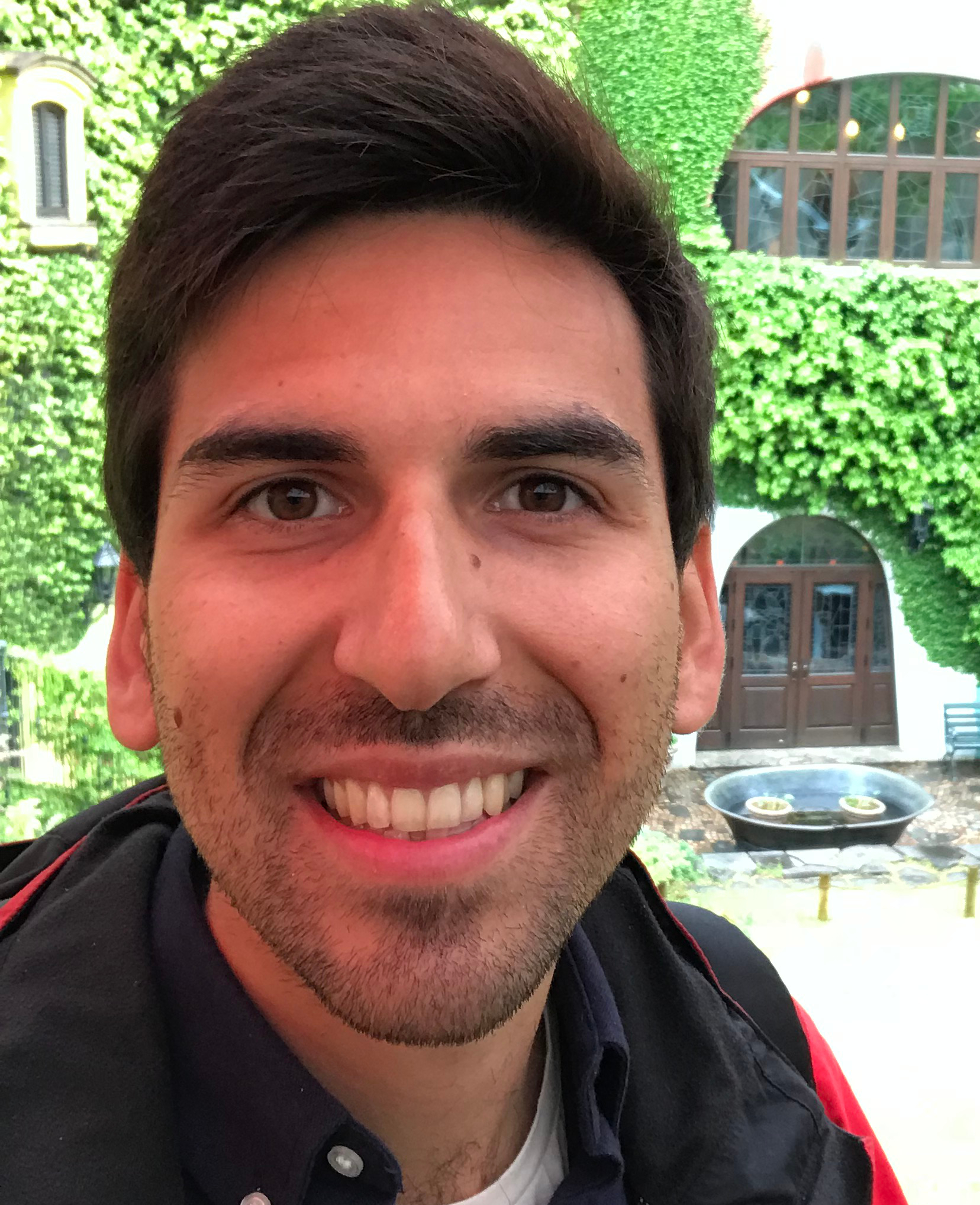The Right to Protest
Posted in Strandlines and tagged with

It’s incredible what you come across on a small walk along the Strand.
I was walking towards the Temple tube station after finishing an interview with the India Club’s Phiroza Marker, when I came across a small gathering of 6 people outside a gated building.
I didn’t know what the building was or who the people were but they revealed a sense of purpose and determination in their movements. The building seemed to me, to house a medical or pharmaceutical company offices. What was going on? I asked myself.

Masala Dosa and Porotta from the India Club. Credit Tristan Tetteroo
Feeling sleepy-tired after a deliciously filling lunch, I didn’t feel particularly sharp but my curiosity took over, so I stayed to watch the group and see what was about to unfold.
The small gathering of 6 stood defiant across from the building entrance, and a man, I assume an employee of the company, came out to question them. At this point, I was closer to the group, just enough to eavesdrop on their conversation.
”Yes, this is a peaceful protest” replied the young man with a red-lined and white flag draped across his shoulders.
”How many of you will there be?” asked the, I’m assuming, office employee.
”Just a few more but I’d rather not give a specific number” replied the young man.
The young man’s accent revealed a potentially Belarusian origin, but it’s something I can’t confirm for sure. It’s a frustration I carry with me until now, not to have asked more about the young man and the group’s story and why they were there … but as I mentioned earlier, I wasn’t particularly on point.
After the office employee retreated back inside the building, another figure appeared at the corner of the street walking towards the protesting group.
He was a reporter, more specifically a photographer, for the Telegraph who was the only one from the press when I left the scene, and it turns out was also the only other person who came to the protest.
Then they started.
At first I didn’t understand the connection, but could now clearly see, from where I stood, that this was the British American Tobacco Headquarters (BAT). How could they be ‘funding terror in Belarus’? I wondered.
As a curious, but dopey, observer I watched and didn’t ask the protestors for details. I’m not a member of the press but thought this would make an interesting small story and wondered how many more small protests take place in the area that are missed by the headlines or by the rest of us.
If it’s not on the headlines or in the social media channels it’s like it didn’t happen, right?
It made me think about the role of protest as a way to express our views and create changes in the world around us. Does it work? Is it worth disturbing the peace?
I left the protesting group curious to know if anything would come of it.
Years before this, I’d taken part in student protests around the area back when the then Government had announced increases to university tuition fees. It didn’t affect me per se, as I was just finishing my own degree but felt compelled to participate.
In the end, it seemed like nothing came of it despite the efforts and protests against these policies. Tuition fees were increased and currently stand around the 9,200£/ year for an undergraduate degree, in comparison to the 3,200£/ year I paid.
The experience at the time left me feeling powerless and, I have to admit, shook my confidence in the value of protesting.
” Lukashenko’s brought more attention to himself instead of less after this Ryanair situation” were the Telegraph’s reporters parting words before I left the scene.
As I later read, President Lukashenko of Belarus had taken part in the August 2020 elections which have been condemned as rigged by the opposition party as described here, and who just recently forced a Ryanair flight, heading to Lithuania from Greece, to land in Belarus under the pretext of a bomb threat on the flight. Once the planes grounded, the opposition activist and journalist Roman Protasevich and his girlfriend Sofia Sapega, were arrested by Belarusian authorities while the rest of the crew and passengers were allowed to return to Vilnius, Lithuania.
The EU and the US condemned this event as a form of state terrorism (in point D)and from then imposed sanctions and restrictions against the Belarusian government, its supporters and the economic actors that continue to ensure the survival of the government.
That’s when the connection between this small band of protestors outside BAT’s offices became clearer.
Would the protestors be heard and considered? Would BAT end its ties to the Belarusian government? What will happen with Belarus?
It felt so unlikely a small band of protestors could cause a large company to change its decisions.
What a great surprise to open up an I newspaper just yesterday to read ‘British American Tobacco halts production in Belarus‘.
This reminded me indirectly to Ruth Duston’s words about the StrandAlwdych project coming to life thanks to the collective actions of the Northbank BID and the Westminster City Council.
Upon reading the news, I saw another example of collective action creating change. Whether its the actions of that small group that directly led to the changes in BAT isn’t clear, but it might have helped.
Seeing these events happen around me, makes me feel hopeful change can happen when people come together for a shared goal.
It’s a also reminder of the areas perennial link to politics and its counterpart – protest.
_____________________________________________________________
The opinions expressed above are solely the author’s and do not reflect the opinions and beliefs of the website or its affiliates.

